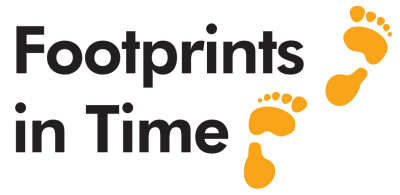Footprints in Time information for participants

Acknowledgement
The Footprints in Time team acknowledges Aboriginal and Torres Strait Islander peoples throughout Australia and their continuing connection to land, water, culture and community. We pay our respects to the Elders both past and present.
Aboriginal and Torres Strait Islander peoples should be aware this site may contain images and names of deceased persons.
About the study
Footprints in Time: The Longitudinal Study of Indigenous Children (LSIC) is an Australian Government initiative. LSIC aims to provide quality quantitative and qualitative data. The data can give insights into how a child’s early years affect their development over the life course.
The study is guided by a majority Indigenous steering committee. Associate Professor Kalinda Griffiths chairs the committee.
The study includes 2 groups of Aboriginal and/or Torres Strait Islander youth who were aged 6 to 18 months (B cohort) and 3.5 to 5 years (K cohort) when the study began in 2008. Footprints in Time families are located in many urban, regional and remote areas across Australia.
In wave 1 (2008), we conducted over 1,680 interviews with parents or primary carers. Primary carers were usually mothers. Over 265 interviews were also conducted with fathers or other significant carers. We added more families in our wave 2 interviews.
Participants have shown a strong commitment to Footprints in Time. As the young people become adults we want to continue interviewing. We want to learn what has helped Footprints kids grow up strong, go on to further education and employment, and raise families.
Go to the Footprints in Time overview page to learn more about the LSIC study.
Read about the study in the LSIC fact sheet.
Survey participant privacy
Your privacy is important to us. Strict procedures ensure that only authorised people have access to your information. Interviewers, researchers and others involved in the study comply with the Privacy Act 1988(Opens in a new tab/window) (Cth).
For more details, read the:
Topics covered in the study
The study covers a wide variety of topics. They include:
- health
- learning and development
- Culture, identity, Country, and language
- experiences of racism
- schooling (engagement, outcomes)
- family and community housing
- computer and internet use
- values and aspirations
- work and further education.
You can find more information from the Data Dictionary and Data User Guide. Both documents are publicly available from the Australian Data Archive (ADA) Dataverse page without applying for the data. Visit Longitudinal Study of Indigenous Children Dataverse(Opens in a new tab/window).
Key research questions 2020 to 2025
The steering committee formulated and updated the study’s key research questions for 2020 to 2025.
- What do Aboriginal and Torres Strait Islander children and young people need to grow up strong?
- What helps Aboriginal and Torres Strait Islander children and young people to stay on track or become healthier, more positive and strong?
- What is the importance of family, extended family and community in adolescence and emerging adulthood?
- How can services and other types of support make a difference to the lives of Aboriginal and Torres Strait Islander children and young people?
- How do Aboriginal and Torres Strait Islander children and young people transition into and through adulthood?
- What does it mean to be a young Aboriginal and/or Torres Strait Islander growing up in the 21st century?
Data collection in 2024 (wave 17)
Wave 17 data collection will take place between February and December 2024. Our Research Administration Officers (RAOs) will visit Footprints in Time families to conduct interviews.
Our RAO interviewers are all Aboriginal and/or Torres Strait Islander employees of the department.
Participants can choose to take part in a face-to-face, telephone or a video interview. If you’re a Footprints in Time family and would prefer to do a telephone interview, contact us. We’ll arrange a suitable time for an interview. You can either:
- call our free call number 1800 106 235
- email LSIC@dss.gov.au.
Planning future waves
We create the content of future data collection waves by engaging with:
- government agencies
- community stakeholders
- academic institutions
- working reference groups.
The Footprints in Time Steering Committee approves the content of data collection. The Human Research Ethics Committee of the Australian Institute of Aboriginal and Torres Strait Islander Studies (AIATSIS) provides ethical clearance for content and fieldwork processes.
If you have suggestions for the content of future data collections, contact LSIC@dss.gov.au.
Research and publications
LSIC data has improved our understanding of what Aboriginal and Torres Strait Islander children, young people, families and communities need to live healthy, strong lives. Read the available LSIC research and publications.
How to access the data
LSIC data is available to approved researchers from government, academic institutions and non-profit organisations. In partnership with the Australian Data Archive(Opens in a new tab/window), our Longitudinal Studies team is using Dataverse to facilitate access to its longitudinal datasets, including LSIC. Dataverse is an online platform that enables you to:
- find out about user obligations when accessing LSIC data
- apply for access to LSIC data
- access LSIC data files, once approved
- access LSIC data documentation, such as the data user guide, data dictionary and labelled questionnaires.
Visit Dataverse(Opens in a new tab/window).
Keep in touch
If you’re part of the Footprints in Time family, please keep in touch.
If your contact details are changing or have changed, let us know.
Your feedback and stories are also important to us. If you would like to share anything with us about being in the study, contact us.
You can either:
- contact your interviewer (the Research Administration Officer [RAO])
- email LSIC@dss.gov.au
- call our free call number 1800 106 235.
We appreciate your time sharing your stories and keeping your contact details up to date.
Our newsletter
We are committed to providing feedback to Footprints in Time families taking part in the study. We do this through regular newsletters. These include selected findings about the Footprints in Time families and communities where they live.
If you’re part of the study and haven’t recently received your newsletter, email LSIC@dss.gov.au.
If you have concerns or complaints
If you have any concerns or complaints about the study, contact the study’s ethics committee by post or email.
Email: Ethics@aiatsis.gov.au
Write to:
Executive Officer, Human Research Ethics Committee
Australian Institute of Aboriginal and Torres Strait Islander Studies (AIATSIS)
51 Lawson Crescent
ACTON ACT 2601
Contact us
For more information about the study either:
- email LSIC@dss.gov.au
call our free call number 1800 106 235.
